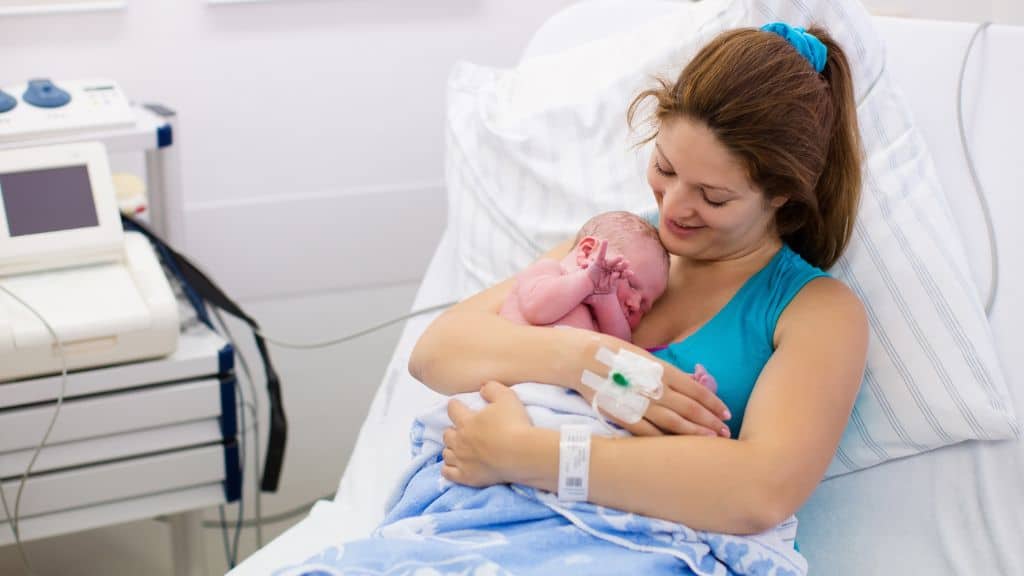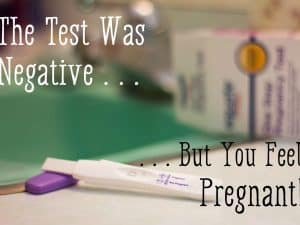
Table of Contents
Nothing can prepare you for the wave of emotions of holding your little one in your arms. The tsunami of feelings might wreck you and despite all that you got to be there for your little one. That does not mean ignoring your body’s needs and wants. There are many things you will be looking forward to like eating foods you avoided during your pregnancy or sleeping on your stomach again.
Postpartum recovery is the least talked about stage of pregnancy yet those are the most hormonally challenging days of your pregnancy journey. There are a few things not to do after giving birth; things that might hinder your postpartum recovery and worsen your health.
Keep scrolling to find out more about “things to avoid after giving birth” and some FAQs about postpartum.
1. Don’t Insert Anything Into Your Vagina
Your vagina undergoes surprising changes depending on your birth journey, including how much you bled during delivery. On the other hand, you might also feel like you are back on your old track so why not do all those normal activities like having sex or using tampons?
Tampons and Sex
Remember that no matter how you feel, wait before you put anything into your vagina. Or better do so only after consulting a doctor during your 6th-week postpartum checkup. The reason is you could be prone to infections as your uterus is still recovering from giving birth. Any vaginal repair that you might have had after delivery must be healing too so when you use internal products like tampons, menstrual cups, or even having sex might lead to bacterial infection in the wounds.
Instead, use pads for the first 2 to 6 weeks postpartum (the time for which after-birth bleeding lasts). Change your pads frequently and wash your hands to keep away infections. Doctors recommend waiting for 4 to 6 weeks after delivery to have sex. Chances of infection reduce after 2 weeks postpartum but it’s better to wait for at least 6 weeks.
Episiotomies and Tears
Another risk factor for infections in your vagina is tears and episiotomies. If you had a vaginal birth, your cervix must have dilated to allow the baby through. It takes some time to go back to its normal size. So again, you must ask your doctor.
2. Don’t Over-exert Yourself
We get it: having a newborn in the house and chilling does not go hand-in-hand. There might be days filled with very little sleep, fatigue, diaper changes, and late-night breastfeeding. However, do carve out some time for yourself as if you try to overdo it, you might bleed more. It can even lead to anxiety, feelings of overwhelm, muscle strain, and injury. Listening to your body cues and slowing down accordingly is the best way to deal with postpartum fatigue.
What About Exercising?
You must be itching to get back to your old jogging track. But remember gentle walks are okay. Be sure to ask your doctor what to do and get clearance from them. If you experience pain while exercising, stop immediately and take rest as much as you can (or as much as your little human will let you).
Kegel Exercises
Antenatal Kegel exercises have been shown to lower the risk of UI post giving birth. 8 Kegels thrice a day or 30 to 45 Kegels per day can prevent urine leakage. It even diminishes the decline of muscle strength.
3. Don’t Ignore Any Pain
The duration and type of pain after delivery vary from person to person. These are some of the factors of varying pain in postpartum women:
- The pain after the first child
- Pain after C-section or vaginal birth
- Any complications during delivery, etc.
Normal Pain During Postpartum Recovery:
- Cramping because of your shrinking uterus
- Pain in between your anus and vagina
- Pain in or around your stitches and incision
- Discomfort in your joints, back, and neck
- Pain from swelling or engorgement of your breasts
Abnormal Pain During Postpartum Recovery
- Headaches affecting vision
- Pain with a fever over 100℉
- Pain while urinating
- Heavy bleeding (soaking 2 pads within 1-2 hours)
- Pain in one area of your breast accompanied by reddening in the area and fever
- Foul-smelling discharge
- Difficulty breathing
- Pain with swelling in the legs
- Chest pain
Pain During Breastfeeding
In the first few weeks of breastfeeding your child, you will experience pain and it can be hard to get used to that. Even nipple creams might not work their magic at times. Remember that breastfeeding is a major struggle for all new mums and lactation consultants will help you get over it.
Your doctor will give you OTC medications and even prescription medicines to ease the pain if need be. They will also be able to determine if it’s the reason behind any major health condition.
4. Don’t Hide Baby Blues
It’s not easy to be perfectly normal after giving birth and it’s normal to have a hard time. But you are not alone because remember baby blues hit 80% of postpartum women. You might feel intense feelings of stress, anxiety, and sadness during the first 2 weeks of postpartum, and beyond that, if you are still not okay, get evaluated for postpartum depression. It is estimated that around 1 in 5 women experience postpartum depression with symptoms like
- Worrying excessively that you may hurt your baby
- The feeling of being disconnected from your baby
- Doubting if you will be able to take basic care of your baby
- Not feeling happy around enjoyable things
- Being withdrawn from friends and/or family
- Feeling angry
- Crying
Causes of Postpartum Depression
Postpartum depression can hit anyone but certain factors make women more susceptible to it such as
- Having multiple births
- Health issues with your baby
- Having complications at birth
- Family history of depression
- Depression before pregnancy
- Not having much support after birth
Postpartum depression, however intense it be, is treatable and the first step is to reach out and tell someone how you are feeling. Talk to a doctor, a close friend, or your partner. Researchers have discovered that social support can lower the rate of postpartum depression. Consider getting support even before your due date because that’s one less worry during postpartum.
Here are some programs for new parents:
- Buy Nothing groups
- Safe Kids Coalition for car seats
- Cribs for Kids
- National Diaper Bank
- SNAP, WIC, or local food banks
5. Don’t Forget Birth Control
How soon can you get pregnant after giving birth? You can get pregnant after 6 to 8 weeks of giving birth. If that’s not your plan, talk to your doctor about birth control options like condoms. If you want to get on hormonal birth control, you have to wait a few weeks depending on whether you have other health issues or are breastfeeding. Here are some of the birth control options available:
- Sterilization
- Progestin-only birth control
- Combined hormonal birth control
- Birth control injection
- Birth control implant
- Intrauterine device (IUD)
Breastfeeding and Birth Control: What’s The Connection?
In some cases, breastfeeding can block ovulation, known as lactational amenorrhea. But for this to happen you must be breastfeeding at least 6 hours overnight and 4 hours during the day. If you miss a feeding (you need 6 to 7 feedings) or your baby sleeps through the night, then this is no longer possible.
6. Don’t Forget to Eat
While keeping your baby nourished you should not forget to do the same for yourself. If you are breastfeeding, your body needs between 450 to 500 calories per day to ensure sufficient milk production. This may mean you need to consume 2,500 calories per day (depending on your weight of course). Here are some ways to achieve that:
- Stay hydrated (expert advice: drink 16 cups of fluids every day while breastfeeding)
- Continue your prenatal vitamins or switch to postnatal ones
- Minimize snack foods high in added sugars and saturated fats
- Eat whole foods like lean protein, whole grains, vegetables, and fresh fruits
7. Don’t Misuse Drugs or Smoke
One of the most important things to not do after giving birth: you can’t smoke during postpartum recovery nor should you inhale second-hand smoke. It has been linked with SIDS, asthma, or other respiratory issues in children and babies. Another less common issue that puts your baby at risk of early death is the misuse of drugs. Experts have shared that the following substances are most commonly misused:
- Cannabis
- Cocaine
- Opioids
- Methamphetamine
Contact the SAMHSA (Substance Abuse and Mental Health Services Administration) hotline at 800-662-4357 for support with drug abuse.
When Should You See a Doctor?
Your first postpartum medical checkup will be scheduled between 4 to 6 weeks after delivery. You must reach out to them if you have concerns even before your appointment. Call your doctor if you have
1. Signs of infection like excessive bleeding, foul-smelling discharge, or fever
2. Unhealed C-section incision sites or vaginal tears
3. Trouble with
- Breastfeeding
- Quitting drugs
- Quitting smoking
4. Signs of mastitis such as fever, lumps, pain, or swelling in your breasts
5. Signs of postpartum depression such as
- Thoughts of harming your baby or yourself
- Excessive worry
- Anxiety
- Feeling disconnected
- Feeling angry
- Feeling hopeless
6. Chest pain
7. Seizures
8. Severe abdominal pain
Things to Not Do After Giving Birth: A Final Word
Navigating life with a newborn is tough especially if you are a first-time mum. Do not forget yourself in that process. If you go through any concerns or questions regarding your postpartum recovery, get in touch with a resourceful doctor for pieces of advice. It will also be a relief to lean on your family and friends for social and emotional support. Remember that you are not alone no matter how much your brain wants you to think otherwise. All help is on deck, you just need to reach out.
Things Not to Do After Giving Birth FAQs
1. How long should you rest after giving birth?
2. When can I start doing household work after normal delivery?
3. What are the rules after giving birth?
4. How long do vaginal stitches take to heal?
5. Why do they say 40 days after birth?
Sources
- https://www.ncbi.nlm.nih.gov/pmc/articles/PMC4933986/
- https://www.nhs.uk/conditions/pregnancy-and-baby/episiotomy/#:~:text=Episiotomy%20cuts%20are%20usually%20repaired,1%20month%20of%20the%20birth.
- https://www.nhs.uk/common-health-questions/pregnancy/how-soon-can-i-use-tampons-after-giving-birth/
- https://www.acog.org/womens-health/faqs/a-partners-guide-to-pregnancy
- https://www.ncbi.nlm.nih.gov/pmc/articles/PMC5558305/
- https://www.marchofdimes.org/pregnancy/baby-blues-after-pregnancy.aspx#
- https://www.cdc.gov/reproductivehealth/depression/index.htm#Postpartum
- https://www.marchofdimes.org/pregnancy/your-body-after-baby-the-first-6-weeks.aspx
- https://pubmed.ncbi.nlm.nih.gov/1346183/#:~:text=Lactational%20amenorrhea%20provided%20significant%20protection,women%20at%206%20months%20postpartum.
- https://www.ncbi.nlm.nih.gov/pmc/articles/PMC8835773/
- https://www.ncbi.nlm.nih.gov/pmc/articles/PMC3518627/
- https://www.acog.org/womens-health/faqs/breastfeeding-your-baby
- https://www.eatright.org/health/pregnancy/breast-feeding/nursing-your-baby-what-you-eat-and-drink-matters
- https://buynothingproject.org/find-a-group/
- https://www.safekids.org/safe-kids-coalitions-united-states
- https://cribsforkids.org/
- https://nationaldiaperbanknetwork.org/
- https://www.fns.usda.gov/snap/supplemental-nutrition-assistance-program
- https://www.fns.usda.gov/wic/about-wic
- https://www.cdc.gov/tobacco/data_statistics/fact_sheets/secondhand_smoke/health_effects/index.htm
- https://pubmed.ncbi.nlm.nih.gov/10333302/
- https://www.cdc.gov/nchs/pressroom/podcasts/2021/20210604/20210604.htm
- https://www.samhsa.gov/find-help/national-helpline
- https://www.ncbi.nlm.nih.gov/pmc/articles/PMC8336225/#:~:text=Antenatal%20Kegel%20exercises%20lowered%20the,for%20women%20with%20UI%20postpartum.&text=To%20prevent%20urine%20leakage%2C%20the,Kegels%20three%20times%20a%20day.






